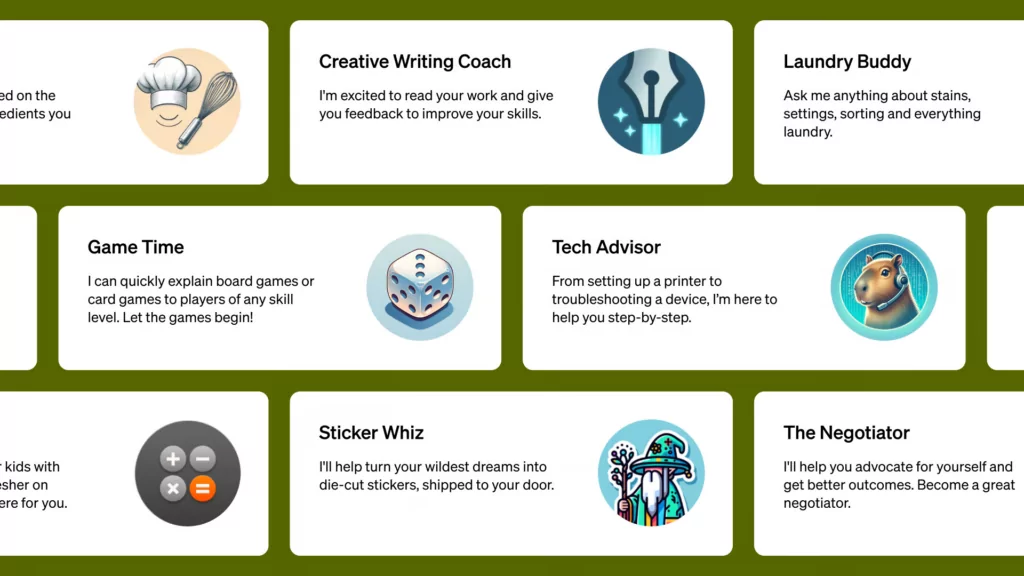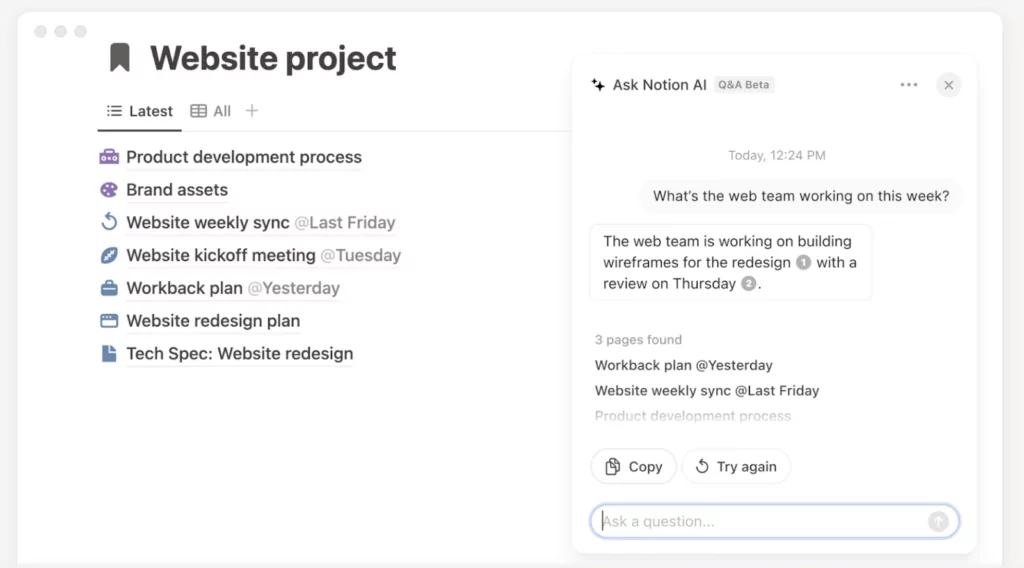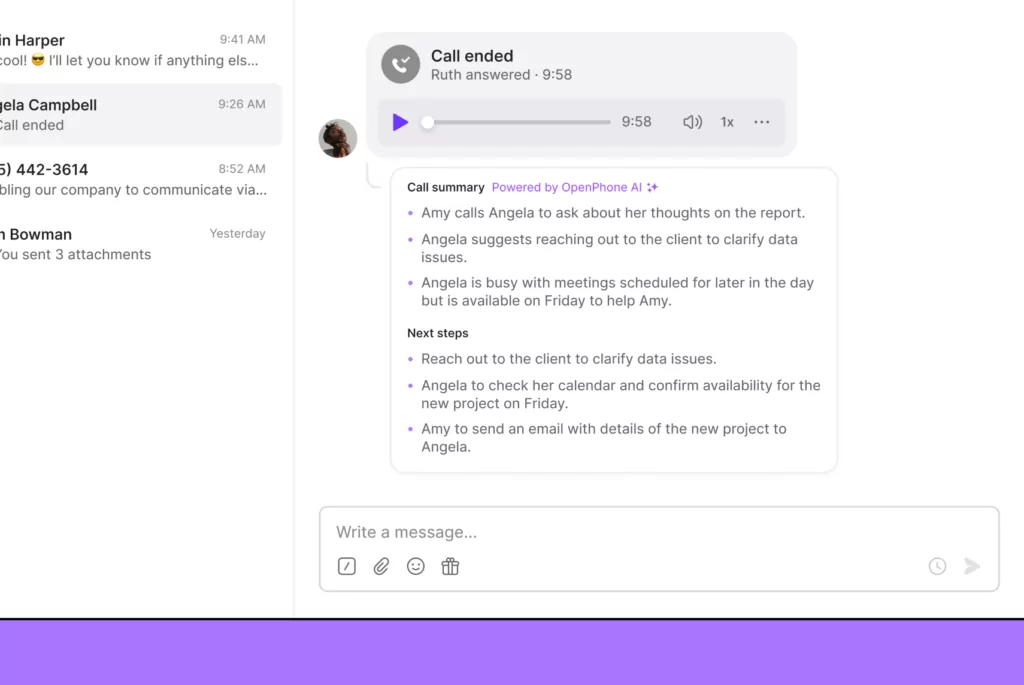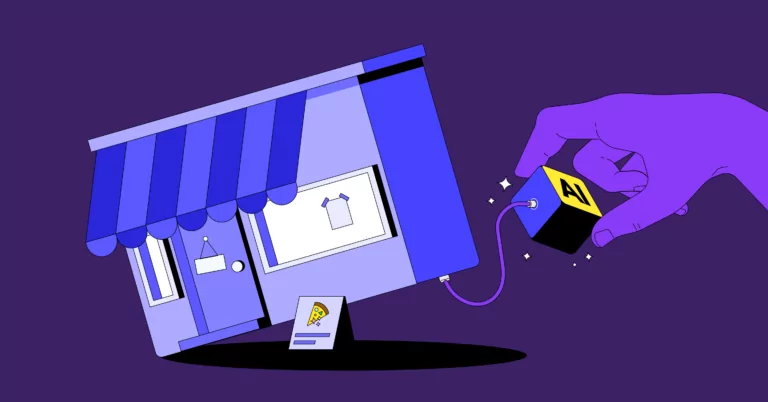AI has been on everyone’s radar in 2023 — chances are your grandmother knows what ChatGPT is at this point.
But for small businesses, incorporating AI is still a tall order. Microsoft estimates that only 10% of small business owners know how to use AI for their work-related tasks. The reason for this is small business owners are too overwhelmed managing the day-to-day aspects of their businesses and are strapped for time and resources to innovate.
We want to equip you with the AI tools you need to stay on top of this wave. In this article, we’ll cover 5 AI trends you should have on your radar.
1. AI will be an executive assistant for small businesses
Forget hiring executive assistants — small business owners will hire AI as their first employee in 2024. It’s great at repetitive admin tasks, knowledge management, and note-taking.
Here are some ways you can use AI to its full potential.
Repetitive administrative tasks
OpenAI released Generative Pre-trained Transformers (GPTs) for ChatGPT Plus users in November 2023 — these are custom adaptations configured for specific tasks such as email and communication management, data entry, and calendar management.
This turns AI models like GPT-4 into executive assistants you can use to execute repetitive workflows — scheduling meetings on your behalf, updating your CRM after calls, or sharing weekly recaps of what you did at work.
As GPTs become more widely available and OpenAI continues to iterate on them, they’ll become more embedded in how you work. In the meantime, you can lean on the Tech Support Advisor GPT to help troubleshoot your office printer that’s refusing to print correctly.

Knowledge management
Executive assistants often serve as in-house knowledge managers. AI has become helpful in this realm, getting everyone on the same page. Knowledge management tools, company wikis, and project management software now incorporate AI functionality to self-organize knowledge for teams.
A prime example is Notion’s latest feature — Q&A — which enables teams to ask AI questions about their wikis and workspaces, helping them stay aligned. Notion users can utilize the /AI command in their workspaces to use the platform’s AI tools for knowledge management, including content summaries, auto-generated next steps, and progress updates on autopilot.

Note-taking
Gone are the days when assistants would frantically scribble down notes during a call. AI tools can now transcribe and summarize in real time, which makes note-taking obsolete.
For example, OpenPhone generates a call summary and offers transcription tools, which means you get a full transcript of your calls instantly and a bulleted list of points that were discussed, including your action items and next steps.

Data analysis
Don’t have the budget for a data visualization tool? Lack training in Excel or Google Sheets? AI can be your data analyst.
ChatGPT can help you design Excel functions so that you can analyze your data faster and more strategically. It also provides a Data Analysis GPT that allows you to upload any document to analyze with plain language.
2. AI will occupy more of the administrative tech stack
Businesses will leverage AI in more back-office contexts in 2024, including finance and legal. Here are a few use cases.
Expense management
Most small businesses start out managing expenses in Google Sheets and eventually switch to QuickBooks, an accounting software. AI offers a middle ground.
Tools like Glide offer no-code solutions to manage expenses with AI. The platform enables features like automated receipt scanning, real-time expense tracking, and seamless integration with existing accounting software. For a small business, this means quicker reports and easier financial oversight without the technical rigmarole.
Now you can move to QuickBooks only when you really need it.
Legal document reviews
New businesses usually have a mountain of legal paperwork to accompany growth, customer acquisition, and investors. It can be confusing to decode, even with a lawyer by your side.
AI tools like Detangle make it easier to review documents with features like contextual analysis and smart summarization. With this information, you can ask your lawyer the right questions and navigate the legal landscape more confidently.
3. AI will replace your fractional HR consultant
Businesses often delay hiring HR leaders early on because they believe their operations are too small for an investment in a dedicated HR role. Instead, they turn to fractional HR consultants to facilitate hiring and improve culture.
AI assists with both of these functions, saving business leaders time and money in the HR department.
Recruiting
AI can already scrape a PDF and deliver insights based on what’s in a document. This means you can upload resumes in ChatGPT and ask them whether candidates fulfill a set of criteria.
These tools will eventually review a list of candidates, their applications, and their interview responses to sort top candidates and recommend them for subsequent interview rounds.
Culture planning
This personal chef recently shared how he used AI to plan meals for people with different dietary restrictions. Similarly, you can collect your team’s food preferences and get ChatGPT to identify local restaurants to suit everyone’s needs.
ChatGPT can also provide itineraries for team offsites and design team-building activities specific to your business’s brand and interests.
4. AI chatbots will be standard for customer service teams
As a user, you likely deplore the generic chatbot — a predefined, restrictive, and annoyingly presumptuous menu with options that don’t match complex customer problems.
But AI chatbots are a whole other story. Because they’re equipped with natural language processing, they can break down complex issues and aren’t limited to pre-typed responses.
For example, here’s how two chatbots — one generic and one AI-powered — would handle a customer query:
Customer query: “I recently purchased a blue sweater from your online store, but I received a red one instead. Can I exchange it, and how long will it take to get the correct item?”
Generic Chatbot
Welcome to our support. Please choose from the following options:
- Order Status.
- Return/Exchange.
- Speak to Representative.
AI Chatbot
I’m sorry to hear about the mix-up with your sweater order. I can help you with that exchange. If you provide me with your order number, I’ll arrange for the correct blue sweater to be sent out immediately. Typically, the exchange process takes about 3-5 business days.
The AI chatbot recognizes keywords like ‘purchased,’ ‘blue sweater,’ ‘received,’ ‘red one,’ and ‘exchange.’ This allows it to comprehend the problem and provide a precise and helpful response.
It also anticipates the customer’s next question about the timeframe, offering a complete solution in one interaction.
Craig Stoss, Director of CX Transformation Delivery at PartnerHero, says, “Chatbots are better than ever and can allow your customers to self-serve using natural language fast.” These bots are trained on your knowledge base, customer interactions, support tickets, and company guidelines.
According to Zendesk, over 70% of customers believe conversational AI and chatbots help them get responses faster and are helpful with simple customer issues. AI-powered chatbots deflect easier questions so a human rep doesn’t need to be involved at all. Essentially, these bots offer a self-service option to your customers.
AI chatbots from companies like Voiceflow, Ada, and Forethought are available now, but they will become cheaper and easier to use in 2024, making them a no-brainer for small businesses.
If you’re curious about more ways you can use AI in customer service, check out this article.
5. AI will be a business’s first creative hire
Whether it’s design, photography, or video, AI tools can outperform low-level freelancers for your small business.
Logo design
Image generation AI tools like DALL-E and Midjourney are sophisticated enough to give you high-quality logos your business can use to get started.
For example, I asked it to create a logo for a hot sauce brand called FlamingBird based out of Denver, Colorado. Here’s what it came up with:

While the first output may not be exactly what I need, I have a solid design to iterate from.
Product photography
If you’re an eCommerce business, product photography is a constant requirement.
AI tools like Pebblely automate the product photography process with image editing and photo processing features, freeing up time for founders to focus on other creative elements.
Here’s an example I created for the Flaming Bird brand:

Video creation
Small businesses know the importance of video to attract new customers, but they often don’t have the budgetary bandwidth to invest in video content.
AI gives businesses the ability to create high-quality video at scale without the need for expensive production teams and scheduling time to shoot.
AI tools like HeyGen use your likeness to create lifelike avatars — you can create an explainer video on your website to add some personality to your customer support answers.
2024 is the year for AI adoption
AI will be everywhere in 2024. Whether you use it for admin, HR, marketing, or customer service, it will augment your teams and help you move faster as a small business.
2023 was the year for AI experimentation, where developers and companies tested how far they could take generative AI models. 2024 is the year businesses of all sizes adopt AI at scale for their tasks.

